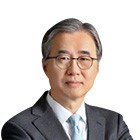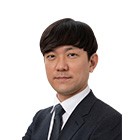Video
Publications
Issue Briefs
Publications | Issue Briefs
A Sixties Comeback: Restoring U.S. Nuclear Presence in Northeast Asia
Choi Kang, Peter K. Lee
4,2622025.05.09
The nuclear balance of power in Northeast Asia is in crisis. North Korea, China, and Russia are using their nuclear arsenals as cover to undermine the regional order. Meanwhile, South Korea and Japan must rely on the promise of U.S. extended nuclear deterrence commitments that can only be called upon in the event of nuclear war and which are otherwise ineffective at stopping the current nuclear arms race. Given the emerging Eurasian nuclear axis, it is time to explore similar collective countermeasures among U.S. allies. In the 1960s, the United States deployed over 2,000 non-strategic nuclear weapons, commonly known as tactical nuclear weapons, in both South Korea and Japan. Now that there are three nuclear threats in Northeast Asia, it is time to restore the U.S. nuclear force posture to reflect the threats of the 2020s. The redeployment of U.S. tactical nuclear weapons to South Korea and Japan would represent a third way between the risky pursuit of an indigenous nuclear weapons capability by these countries and the current dependence on offshore U.S. strategic weapons.
The views expressed herein do not necessarily reflect the views of the Asan Institute for Policy Studies.

Choi Kang
President
Dr. CHOI Kang is the President at the Asan Institute for Policy Studies. Previously, he was the dean of Planning and Assessment at the Korean National Diplomatic Academy. In 2012, Dr. Choi served as the president at the Institute of Foreign Affairs and National Security (IFANS). He was also a professor and director general for American Studies at IFANS, a research fellow at the Korea Institute for Defense Analyses, and senior director for Policy Planning and Coordination on the National Security Council Secretariat. He holds several advisory board memberships including: the Committee on Foreign Affairs, Trade, and Unification of the National Assembly; Ministry of National Defense; Ministry of Unification; Air Force Development Committee; and the National Unification Advisory Council. Dr. Choi was also a South Korean delegate to the Four-Party Talks. He writes extensively on the ROK-US alliance, North Korean military affairs, inter-Korean relations, crisis management, and multilateral security cooperation. Dr. Choi received his B.A. from Kyunghee University, M.A. from the University of Wisconsin-Madison, and his Ph.D. in political science from Ohio State University.
view more
Peter K. Lee
Research Fellow
Dr. Peter K. Lee is a research fellow in the Center for Regional Studies at the Asan Institute for Policy Studies. His research focuses on Indo-Pacific security and US alliances and partnerships. Previously, he was a research fellow in the Foreign Policy and Defence Program at the United States Studies Centre at the University of Sydney and also a Korea Foundation research fellow at the University of Melbourne. His recent publications include “An Indo-Pacific Allied Shipbuilding Enterprise” (Asan Report, December 2024) and “Should South Korea Join AUKUS Pillar 2?” (Asan Issue Brief, December 2024), “Reciprocating Trust and Reconciling Ambitions in ROK-U.S. Defense Industrial Cooperation,” (Asan Issue Brief, May 2024), and “Comparing Allied Public Confidence in U.S. Extended Nuclear Deterrence,” (Asan Issue Brief, February 2024). Dr. Lee received his Ph.D. in strategic studies from the Australian National University, and his Master of International Relations and B.A. with First Class Honours in political science from the University of Melbourne.
view more


